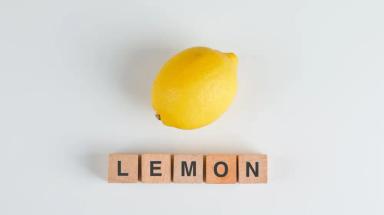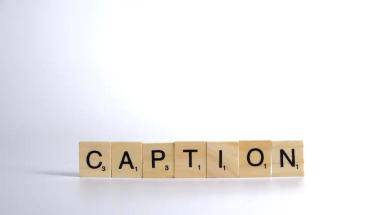Summary
Medical translation is the process of conveying a medical document from the source language into the target language. The medical document can be an article, an essay, a research paper, or another type of document. To become a medical translator is to embark on a complex and difficult journey that needs practice since it has many problems and difficulties. That is why there are certain requirements for a medical translator to be professional.
Get our medical translation services now
Medical translation definition
Medical translation typically means the transformation of a medical text or another medical content from one language to another. It can be the translation of a documentary, research, article, blog, essay, video, interview, series, report, podcast, thesis, or another type of content. Medical translation is one of the most used types of translation since it has so many benefits for everyone. Medical translation is considered to be one of the most important types of technical translation that are commonly used nowadays.
To be able to successfully deliver a high-quality medical translation, medical translators are the ones who are called to complete these tasks. Medical translators must be experienced in a medical specialty since it includes all fields such as psychiatry, pediatrics, surgery, dermatology, neurology, pathology, gynecology, urology, and more because each medical specialty has its own terminologies and concepts.
Medical translators are the ones who are able to successfully convey the meaning of medical texts from one language into another, and they make it possible for everyone to benefit from discoveries and treatments that were discovered in different countries.
Get our medical terms translation now
Medical translator requirements
To be able to become a successful and professional medical translator, there are some requirements and qualifications one must have. These requirements include:
Academic requirements
- High school diploma.
- Bachelor's Degree of Arts in Translation from a university or an institute that is recognized by the state.
- Additional degrees in translation, such as a Master’s Degree in Translation, or a degree in Medical Translation are a plus.
- It is highly advised to receive training in medical translation if one didn’t earn an additional degree in Medical Translation. A certification is an added value, but not a necessity since it is useful to medical translators before being useful to anybody else.
Get our scientific translation services now
Personal requirements
- Experience in the medical field is a must. An internship or training can be very useful before becoming a medical translator.
- Close attention to details is a must since there are many details and information that should be translated. From numbers to amounts, close attention to detail is one of the most important requirements.
- Ability to work under pressure since medical translators might find themselves working on different projects at the same time and the deadlines might be very tight.
- Ability to deliver medical translations on time, no matter how tight the deadline is. Medical translators must be able to manage their time and tasks in a way that makes it possible for them to deliver the translation on time.
- Being fast is so important no matter the translation field since it leads to more productivity and to less stress. Not to mention that medical translators might be called to multitask, which is impossible if the translator weren’t fast.
- Responsiveness is one of the most important personal requirements since it makes communication easier. Also, responsive medical translators are able to understand the needs of clients more.
- Great communication skills, whether verbal or written. It is mandatory to hire a medical translator who has great communication skills.
- Ability to write correctly in both the target and the source language, in terms of grammar, spelling, punctuation, and sentence structure.
- The ability to conduct research is very important. The whole translation process is based on research, and medical translation is no exception.
- Ability to understand complex sentences and terminologies and this is only possible if the medical translator is experienced.
- Ability to find the convenient translation and the used terminology.
- Patience, since medical translators might face many obstacles, and without patience, one can never deliver high-quality outcomes.
- Ability to find solutions to complex problems that might suddenly arise.
- Computer literacy is very needed nowadays to be able to translate and to be able to conduct research as well. Medical translators must embrace technology and the internet.
Get our medical reports translation now
Medical translator salary
The salary of medical translators varies based on many factors. First, if the medical translator is a freelancer, the salary won’t be the same as the medical translator who is employed in a company. Also, experience plays a major part when it comes to the salary of the medical translator.
The salary of an employed medical translated can be anywhere between $50,000 and $80,000 per year, based on the experience.
On the other hand, the salary of a freelance medical translator can be anywhere between $15 and $50 per hour. That is based on the experience of the medical translator as well.
It is important to mention that a medical translator gets paid a lot more than a general translator or a translator that works in other fields. The reason is that they usually have more experience, some might have a certificate or an additional degree, and because medical translation requires a great effort, more time, and more research than other translation fields.
Not to mention the complexity of medical texts and content, the difficulties they have, and the problems that might arise while translating a medical text. All in all, medical translation is a high-paying job if the medical translator is professional, experienced, and qualified.
Medical Transcription: What Is It and Why Is It Important?
Medical translation VS technical translation
Medical translation is a type of technical translation. Technical translation can be considered an umbrella that covers many fields, including the medical field, the legal field, the field of engineering, the field of architecture, the scientific field, the field of information technology (IT), and more. Technical translation typically means the areas that include technical texts and technical terminologies that are usually referred to as complex fields with many problems. Technical translation requires specific qualifications and a technical translator must be specialized in one specific field to be able to correctly convey the meaning of the text from the source language into the target language.
Lost in Medical Translation? Tips for Translating English to Arabic
What are the benefits of medical translation?
Medical translation has always been one of the most important translation fields since it has helped many individuals over time. Even though it is considered to be one of the most difficult translation fields, having it done by professional and experienced medical translators can be rewarding.
Get our Arabic to English - English to Arabic Translation
Medical translation has many benefits, including:
- Exchange of medical discoveries: Medical translation makes it possible for scientists to exchange medical discoveries and help each other, especially since many countries aren’t developed in terms of medicine.
- Raising awareness: Medical translation can raise awareness by presenting ways to prevent disease, how to cope with an illness, or what must be done in specific medical conditions and cases. This can be done through an ad, a campaign, or even an article.
- Spreading information: Medical translation helps in spreading medical information around the whole world. All it takes is for one country to write about a specific medical matter and the translation can make the information travel the entire world.
- More opinions: Medical translation makes it possible for patients to ask foreign doctors about their medical case or condition. This helps in reassuring patients, and it even helps them get convenient treatment in case local doctors failed at it.
- More audience: Medical translation can make the discovery, the research paper, the article, the movie, the video, or the campaign reach more audiences. Having the medical content translated automatically results in more audience.
- More solutions: Medical translation makes it possible for scientists, doctors, and even patients to find more solutions. Not all countries have sufficient medical discoveries that are useful, and some diseases and illnesses might need solutions that were found in different countries.
How to become a certified medical transcriptionist
What are the medical translation difficulties?
There are many difficulties in medical translation and many obstacles that medical translators might face.
Some of these difficulties include:
- Finding the correct terminology: Finding the correct terminology when it comes to medical translation is hard for some translators since there are some terms that don’t have equivalents with the exact same meaning.
- Accuracy: Accuracy is considered to be a difficulty in medical translation since many fail at conveying the exact same meaning from the source language into the target language. The medical field requires accuracy more than other translation fields, which might cause some problems.
- Cultural differences: Not all countries share the same cultures and beliefs, which is hard to identify and it makes the whole process of medical translation hard since medical translators are called to conduct research to be able to know what might not be accepted in the target culture and what requires additional explanation to be understood.
- Missing terms and equivalents: Due to the new discoveries, there are always terms that don’t have equivalents in the target language. This might be challenging for some medical translators as they might not be able to find a convenient translation.
- Understanding the meaning: Some medical translators still have a hard time understanding the medical content in the source language, no matter how experienced they were. That is why this is considered to be one of the most challenging medical translation difficulties that they might face, as these cases require thorough research.
- Proper use of medical language: The medical field has its own language, structure, and style. For that reason, some medical translators fail at writing the translation of medical content in a proper way, since they find it difficult and complex, especially since it is not similar to other fields.
Get our French to English - English to French Translation
What are medical translation problems?
When it comes to medical translation, many problems can arise. These problems include:
Literal translation:
It is true that literal translation can be used in the medical field, however, it might not be used in all situations. For that reason, the use of literal translation in the wrong way is a common problem in the medical field.
Inaccurate results:
When the medical translator is not qualified enough, the translation might not be professional and it might result in inaccurate results. Inaccurate results in medical translation might lead to many problems, whether for patients, researchers, or doctors.
Incomprehensible terms:
Medical documents might include incomprehensible terms that medical translators are unable to understand, and they might not be able to find a proper definition or a convenient translation. Many consider this to be one of the biggest problems in medical translation as well.
New terms:
In our fast-paced world, terms are always being discovered and new terms are appearing that might not have any translation in the target language. This is one important problem since it makes it almost impossible for medical translators to accurately convey the meaning of new terms.
Abbreviations and acronyms:
The medical field is all about abbreviations and acronyms, especially in the cases of handwritten prescriptions for example. However, medical translators might not always be familiar with these abbreviations and acronyms, and more often than not, they might not easily find their meaning of them.
Homonyms:
Homonyms are known for their power to confuse translators no matter the field. The medical field is no exception as there might always be homonyms that medical translators won’t understand and they might even translate these words by other words that don’t apply in the context of the medical field.
Perfecting the Art: Qualifications for Professional Proofreader
How to translate a medical term?
There are specific glossaries and dictionaries that help medical translators who want to translate a medical term. However, due to our fast-paced world filled with new discoveries, some terms might not be in these glossaries or dictionaries just yet, which makes medical translators go for option number two, which is to refer to online dictionaries and translation programs that are constantly updated.
However, there is a way one can use while translating a medical term. It consists of reading the suffix first, the prefix second, and the root last. This way, translators are able to understand complex terms that aren’t easily understood. Once they understand it, the process of searching for its meaning in another language becomes easier.
Get a quote now and let our medical translators bridge the gap between languages!






